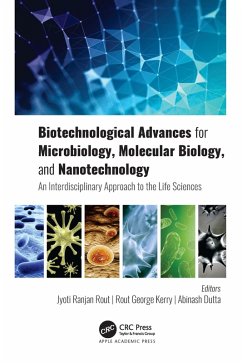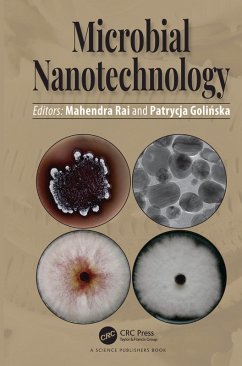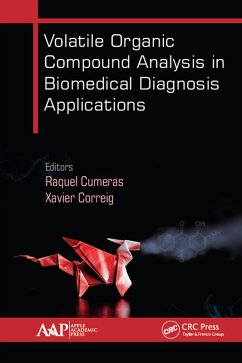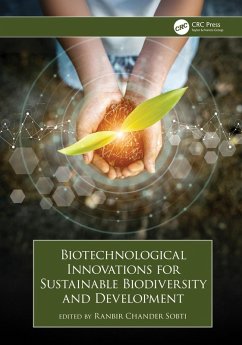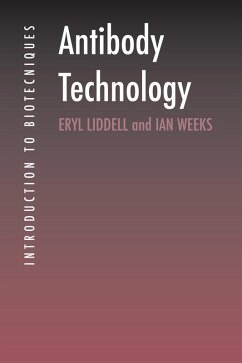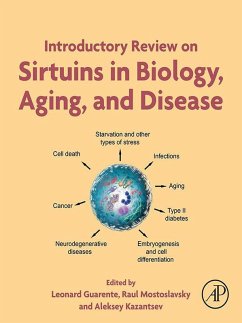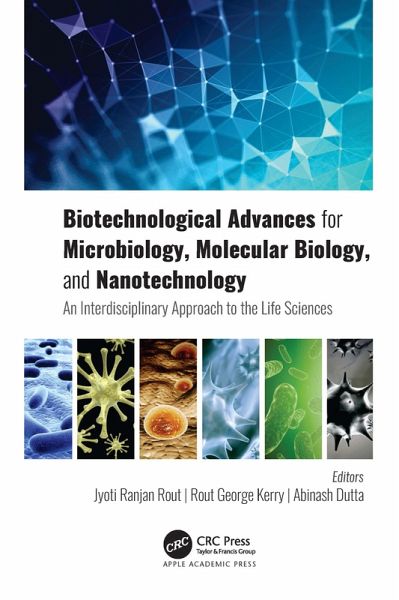
Biotechnological Advances for Microbiology, Molecular Biology, and Nanotechnology (eBook, ePUB)
An Interdisciplinary Approach to the Life Sciences
Redaktion: Rout, Jyoti Ranjan; Dutta, Abinash; Kerry, Rout George
Versandkostenfrei!
Sofort per Download lieferbar
167,95 €
inkl. MwSt.
Weitere Ausgaben:

PAYBACK Punkte
84 °P sammeln!
Biotechnological Advances for Microbiology, Molecular Biology, and Nanotechnology: An Interdisciplinary Approach to the Life Sciences presents cutting-edge research associated with the beneficial implications of biotechnology on human welfare.The volume mainly focuses on the highly demanding thrust areas of biotechnology that are microbiology, molecular biology, and nanotechnology. The book provides a detailed overview of the beneficial roles of microbes and nanotechnology-based engineered particles in biological developments. Also, it highlights the role of epigenetic machinery and redox modu...
Biotechnological Advances for Microbiology, Molecular Biology, and Nanotechnology: An Interdisciplinary Approach to the Life Sciences presents cutting-edge research associated with the beneficial implications of biotechnology on human welfare.
The volume mainly focuses on the highly demanding thrust areas of biotechnology that are microbiology, molecular biology, and nanotechnology. The book provides a detailed overview of the beneficial roles of microbes and nanotechnology-based engineered particles in biological developments. Also, it highlights the role of epigenetic machinery and redox modulators during the development of diseases. In addition, it provides research on nanotechnology-based applications in tissue engineering, stem cell, and regenerative medicines.
Overall, the book provides an extended platform for acquiring the methodological knowledge needed for today's biotechnological applications, such as DNA methylation, redox homeostasis, CRISPR, nano-based drug delivery systems, proteomics, genomics, metagenomics, bioluminescence, bioreactors, bioremediation, biosensors, etc.
Divided into three sections, the book first highlights some recent trends in applied microbiology used in different areas, such as crop improvement, wastewater treatment, drug delivery, healthcare management, and more. The volume goes on to cover some advances in cellular and molecular mechanisms, such as CRISPR technology in biological systems, induced stem cells in disease prevention, integrated omics technology, and others. The volume also explores the indispensable role of nanotechnology in the precisely modulating intricate functioning of an organism in diagnostic and therapy along its application in tissue engineering and regenerative medicine and in food science as well as its role in ecological sustainability.
This multidisciplinary volume will be highly valuable for the researchers, scientists, biologists, and faculty and students striving to expand their horizon of knowledge in their respective fields.
The volume mainly focuses on the highly demanding thrust areas of biotechnology that are microbiology, molecular biology, and nanotechnology. The book provides a detailed overview of the beneficial roles of microbes and nanotechnology-based engineered particles in biological developments. Also, it highlights the role of epigenetic machinery and redox modulators during the development of diseases. In addition, it provides research on nanotechnology-based applications in tissue engineering, stem cell, and regenerative medicines.
Overall, the book provides an extended platform for acquiring the methodological knowledge needed for today's biotechnological applications, such as DNA methylation, redox homeostasis, CRISPR, nano-based drug delivery systems, proteomics, genomics, metagenomics, bioluminescence, bioreactors, bioremediation, biosensors, etc.
Divided into three sections, the book first highlights some recent trends in applied microbiology used in different areas, such as crop improvement, wastewater treatment, drug delivery, healthcare management, and more. The volume goes on to cover some advances in cellular and molecular mechanisms, such as CRISPR technology in biological systems, induced stem cells in disease prevention, integrated omics technology, and others. The volume also explores the indispensable role of nanotechnology in the precisely modulating intricate functioning of an organism in diagnostic and therapy along its application in tissue engineering and regenerative medicine and in food science as well as its role in ecological sustainability.
This multidisciplinary volume will be highly valuable for the researchers, scientists, biologists, and faculty and students striving to expand their horizon of knowledge in their respective fields.
Dieser Download kann aus rechtlichen Gründen nur mit Rechnungsadresse in A, B, BG, CY, CZ, D, DK, EW, E, FIN, F, GR, HR, H, IRL, I, LT, L, LR, M, NL, PL, P, R, S, SLO, SK ausgeliefert werden.




